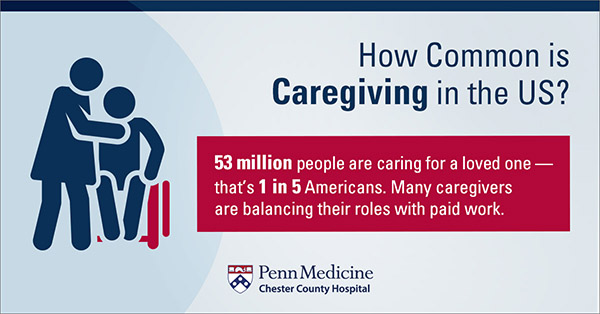
Caregiving is one of the most demanding roles in which you might ever find yourself. Whether it's physical demands, time constraints, or emotional stress, there are a range of aspects to navigate. And any of us could be thrust into it at any time.

There is a good chance you might know a caregiver. Here are 5 ways you can help share some of the load or help them feel less alone.
1. Take Over Tasks — Because There are Plenty.
From cleaning and grocery shopping to laundry and dishes, running a household and caregiving at the same time is a huge challenge. Offer to help in whichever way you feel most comfortable. Drop off fresh fruits and veggies, run a load of laundry, or wipe down the bathrooms.
Whichever chore you choose, set expectations before you start. Let the caregiver know when to expect you, what to expect, and how long you might stay. That will create one less unknown in what is likely an unpredictable situation.
2. Offer Transportation.
Does the caregiver in your life need to get the person they're caring for to an appointment? Or are they so busy caring for someone else that they can't pick up their child from her soccer game?
If you live close by, offer transportation support, either as a one-off or regularly. An hour out of your day once a week or even once a month could make a big difference in the caregiver's life, giving them one less task to work their schedule around.
3. Give Respite.
A battery recharge is crucial to caregiving. Taking care of physical health is, too. Yet nearly one-quarter of caregivers report having difficulty taking care of their own physical health while caregiving.
Give the caregiver a break in their duties by offering to stay with the person they're caring for. This can allow the caregiver to tend to their own needs, such as scheduling a doctor's appointment, joining an exercise class, or taking a nap. Even 20 minutes could be enough for the caregiver to take a walk that will shift their perspective or wash the stress away in a warm shower. This is key, because 36% of caregivers report high emotional stress .
Just agree beforehand on how long you'll stay, and make sure you're comfortable with any responsibilities that might fall on you during the caregiver's time away (e.g., helping the person to the bathroom).
4. Cook or Deliver a Meal.
Healthy eating (or eating regularly at all) might fall down the priority list when caregiving. But making healthy eating choices is key to maintaining your health. If you live close, cook a healthy meal and drop it off. You could even make a night of it and cook on-site with the caregiver. If you're farther away, find out the caregiver's favorite restaurant and schedule a delivery.
Whatever your approach, incorporating lots of nutritious foods will benefit the caregiver's mental well-being, as well as physical.
At its most basic, providing a meal removes an item from the caregiver's to-do list. But food is also nourishing, and a meal is a great way to remind the caregiver that you're thinking of them and looking out for their health, too.
5. Keep Reaching Out.
Caregiving can be all-encompassing, but the majority of caregivers say the role makes them feel useful and gives them a sense of purpose .
Still, because caregiving is demanding, people can also end up feeling stressed and cut off from the rest of their lives. This puts caregivers at risk for depression, which 40% to 70% of family caregivers experience .
So be sure to stay connected. Text or call the caregiver to let them know you’re thinking of them. Keep inviting them to events, even if you aren't sure if they can come.
You want the person to feel supported as well as included. You’re still part of each other's lives, even if the priorities in their life currently keep them away.
Care For The Caregiver
If there is a caregiver in your life who could use support, don't hesitate to get involved. They'll appreciate your effort and presence. In addition, Chester County Hospital offers a variety of support services to assist caregivers, including support groups, counseling and more.